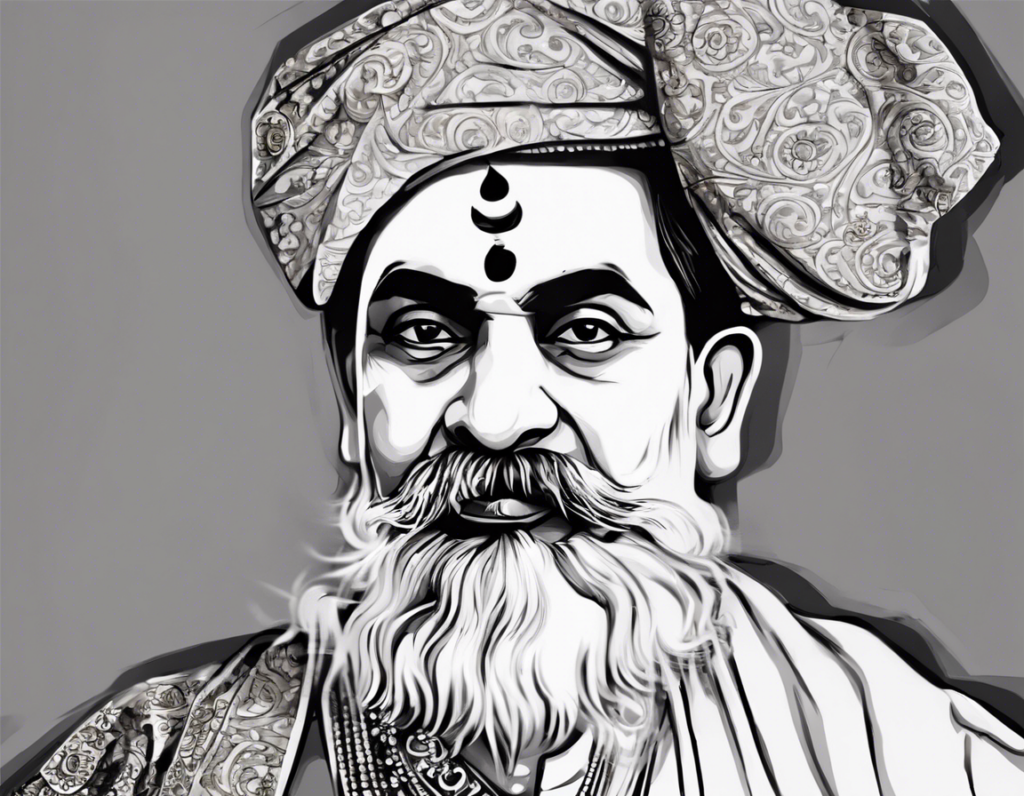The Life and Legacy of Bal Gangadhar Tilak
Introduction
Bal Gangadhar Tilak, also known as Lokmanya Tilak, was a prolific writer, social reformer, freedom fighter, and nationalist leader who played a crucial role in India’s struggle for independence from British colonial rule. Born on July 23, 1856, in a small village in Maharashtra, Tilak dedicated his life to the cause of freedom and social reform, leaving behind a lasting legacy that continues to inspire generations of Indians.
Early Life and Education
Tilak received his early education in Pune and later went on to pursue a Bachelor of Arts degree from Deccan College in Pune. He then completed a law degree and embarked on a career as a journalist, using his writing skills to advocate for social and political change.
Political Activism
Tilak was a staunch advocate of Swaraj, or self-rule, and believed that Indians should have the right to govern themselves and determine their own destiny. He was a vocal critic of British colonial policies and worked tirelessly to mobilize the masses and spread awareness about the injustices of British rule.
Role in the Independence Movement
Tilak’s most significant contribution to the independence movement was his emphasis on the concept of Swadeshi, or self-reliance. He believed that Indians should boycott foreign goods and promote indigenous industries to weaken the economic stranglehold of the British. Tilak also popularized the slogan “Swaraj is my birthright, and I shall have it,” which became a rallying cry for the freedom struggle.
Incarceration and Trials
Tilak’s outspoken views and revolutionary activities led to several arrests and trials by the British authorities. He was imprisoned multiple times for his anti-British activities, including his alleged involvement in the assassination of a British official. Despite facing harsh treatment and hardships in prison, Tilak remained steadfast in his commitment to the cause of independence.
Social Reforms
In addition to his political activities, Tilak was also a champion of social reform. He worked to eradicate social evils such as untouchability and caste discrimination and advocated for education and empowerment of the masses. Tilak believed that social reform and political independence were interconnected and essential for the progress of Indian society.
Legacy and Impact
Bal Gangadhar Tilak’s legacy continues to inspire generations of Indians to strive for freedom, equality, and justice. His contributions to the independence movement and social reform are widely recognized, and he is revered as one of the founding fathers of modern India. Tilak’s ideas and principles have left an indelible mark on the Indian national consciousness and serve as a guiding light for those seeking to uphold the values of democracy and freedom.
Conclusion
Bal Gangadhar Tilak’s life and legacy exemplify the spirit of courage, resilience, and unwavering dedication to the cause of freedom. His contributions to the independence movement and social reform have had a profound impact on Indian society and continue to inspire individuals to stand up for their rights and fight against oppression. Tilak’s vision of a free and prosperous India remains relevant today, reminding us of the importance of upholding the values of justice, equality, and democracy in our quest for a better future.
Frequently Asked Questions (FAQs)
- What were Bal Gangadhar Tilak’s key beliefs and principles?
-
Bal Gangadhar Tilak believed in the principles of Swaraj (self-rule), Swadeshi (self-reliance), and social reform. He advocated for political independence, economic empowerment, and social equality for all Indians.
-
What was Tilak’s role in the Swadeshi movement?
-
Tilak played a crucial role in promoting the Swadeshi movement, which aimed to boycott foreign goods and promote indigenous industries. He believed that economic self-sufficiency was essential for weakening British colonial power in India.
-
How did Tilak’s slogan “Swaraj is my birthright, and I shall have it” inspire the independence movement?
-
Tilak’s powerful slogan became a rallying cry for the freedom struggle, inspiring thousands of Indians to join the movement for independence. It encapsulated the spirit of defiance and determination against British colonial rule.
-
What were some of the challenges faced by Tilak during his political activism?
-
Tilak faced numerous challenges, including arrests, trials, and imprisonment by the British authorities. He endured harsh treatment and sacrifices but remained committed to the cause of freedom and social reform.
-
What is Bal Gangadhar Tilak’s legacy in modern India?
- Bal Gangadhar Tilak is revered as a national hero and a symbol of India’s struggle for independence. His ideas and principles continue to inspire individuals to uphold the values of democracy, freedom, and social justice in contemporary India.
